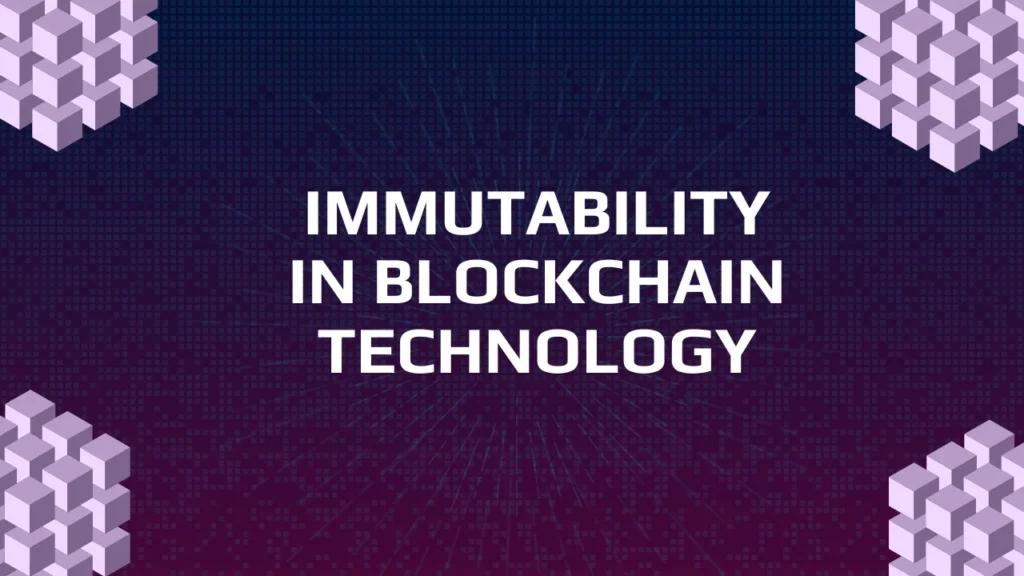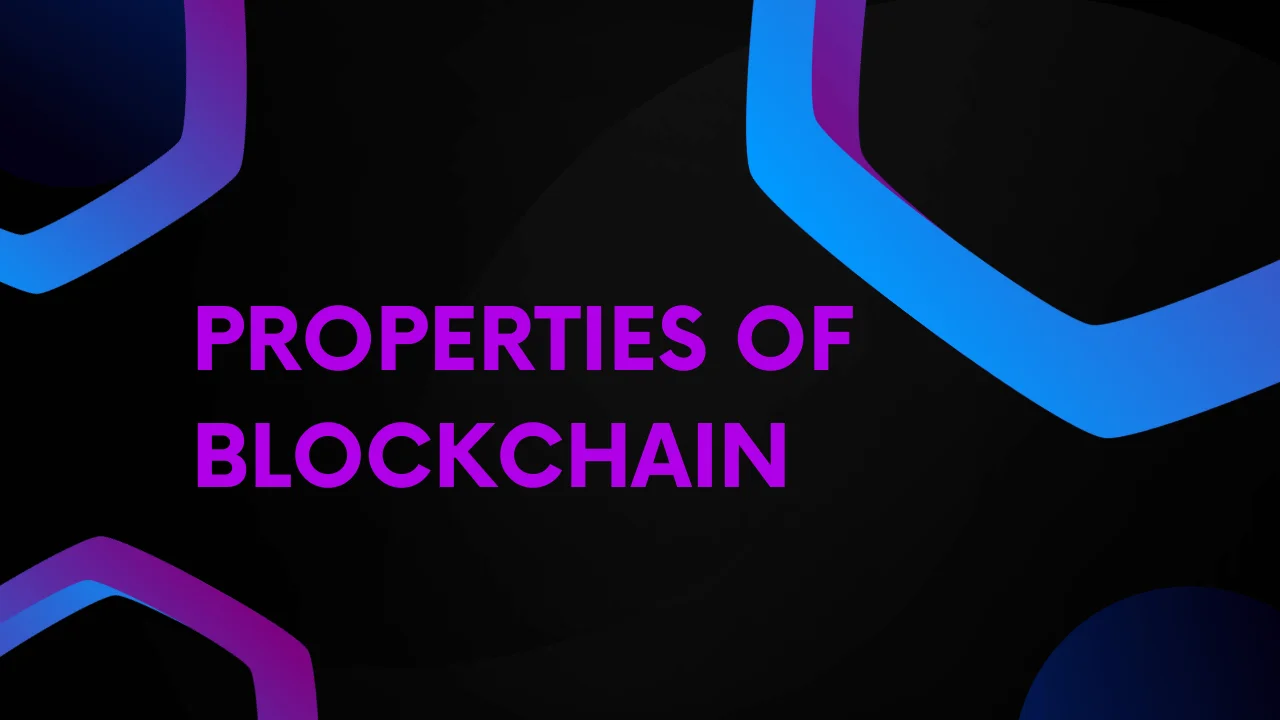Decentralized Blockchain Structure
Power of Decentralization
In discussing the Properties of Blockchain, it’s crucial to highlight its stark departure from conventional centralized databases. Blockchain technology operates on a decentralized principle, distributing authority across multiple nodes within a network. This decentralized architecture ensures that no single component holds absolute control, thereby eliminating the risk of catastrophic failure. The inherent robustness of blockchain stems from its structural design, which not only enhances resilience but also bolsters security measures significantly.
Empowering Through Distributed Control
More democracy and equity are possible thanks to blockchain’s decentralized architecture. Power is distributed among its users, creating a sense of empowerment and inclusivity, because there is no central authority.
Blockchain Transparency Features

Transparent Operations Build Trust
Blockchain technology is built upon the principle of transparency. Most blockchains are open-source, so anyone can see how the system is built. Users are able to confirm the platform’s security and functionality thanks to this transparency, which increases trust.
Enhancing User Confidence
Building user confidence is at the heart of blockchain’s transparency, which goes beyond mere visibility. When users have a good grasp of how the system works, they have more confidence when interacting with it.
Immutability in Blockchain Technology

Creating a Trustworthy Record
Blockchain is defined by its immutability. Data entered onto a blockchain is nearly impossible to change once recorded. A trustworthy and immutable record of transactions is assured by means of complex cryptographic hashes.
Ensuring Data Integrity
The immutability of blockchain technology ensures that all data stored on it remains intact. Users can have faith in the information they access because it has been preserved in its original form.
Cryptographic Hashes and Blockchain
Securing Transactions
The foundation of blockchain security is cryptographic hashes. A series of secure blocks that are exceedingly difficult to alter is created by linking each transaction on the blockchain with the previous one and encrypting it.
Reinforcing Trust with Encryption
Not only do cryptographic hashes in blockchain make transactions more secure, but they also increase user confidence in the system. Every single transaction is safeguarded by the intricate encryption.
Consensus Mechanisms in Blockchain

Agreement Democratically
Proof of Work (PoW) and Proof of Stake (PoS) are consensus mechanisms that blockchain uses to validate transactions. These algorithms eliminate the need for a central authority and prevent fraud by ensuring that all participants agree on the validity of transactions.
Collaborative Verification
When it comes to encouraging teamwork, consensus mechanisms are crucial. They strengthen blockchain’s democratic character by making sure everyone has a vote in the validation process.
Proof of Work in Blockchain
Testament to Dedication
Numerous blockchains employ Proof of Work, a consensus algorithm. The validation of transactions necessitates participants to execute intricate calculations, a task that demands substantial computational resources and time.
Encouraging Fair Participation
PoW’s goals extend beyond transaction validation to include promoting equitable network participation. It makes sure that people are really concerned about the safety and well-being of the network by making them work for validation.
Proof of Stake and Blockchain
More Energy-Efficient Alternative
An alternate consensus mechanism to PoW, Proof of Stake uses less energy. Reducing the need for extensive computational work, PoS chooses validators based on their stake in the network.
Fostering a Greener Blockchain
More sustainable blockchain environments are a result of PoS adoption. Verifying transactions in a greener way and lowering mining’s carbon footprint are two of its main benefits.
Blockchain Security Measures
Fortifying Against Threats
Cryptographic hashes and consensus algorithms aren’t the only things that make blockchain secure. There are extra precautions to prevent hacking and fraud, so it’s a very safe platform for online purchases.
Upholding a Safe Environment
Users can rest easy knowing that blockchain is secure thanks to its multi-layered security measures. These safeguards are essential for keeping the blockchain network trustworthy and secure, which is why it is a great platform for online transactions.
Blockchain and Cryptographic Security
Security and Technology
As evidence of its strength, blockchain technology has cryptographic security built in. By working together, these factors increase confidence by making every transaction safe and verifiable.
Advanced Cryptography
One way that blockchain proves its dedication to security is by using advanced cryptographic techniques. Due to its emphasis on cryptography, blockchain is an extremely effective platform in the fight against cybercrime.
Smart Contracts on Blockchain
Automating Transactions Intelligently
One ground-breaking aspect of blockchain technology is smart contracts. The terms of the agreement are written into code, making them self-executing contracts. When certain conditions are satisfied, these contracts are set to execute automatically.
Streamlining Operations
Smart contracts automate transactional processes, which streamline operations. Because fewer middlemen are required thanks to this automation, transactions are completed more quickly and efficiently.
Programmable Blockchain Transactions
Customizing for Diverse Needs
Smart contracts aren’t the only programmable applications of blockchain technology. Its adaptability stems from its ability to facilitate the personalization of transactions to suit a wide range of needs.
Adapting to User Requirements
A broad variety of user needs can be met by programming transactions on the blockchain. Its adaptability is the reason for its broad use in many fields.
Blockchain Applications Beyond Cryptocurrency
Diversifying into Various Domains
Blockchain may be most commonly associated with digital currencies, but its usefulness goes well beyond that. Supply chain management, secure data sharing, and voting systems are just a few of the many applications that can benefit from its inherent properties.
Exploring New Horizons
The diversity of blockchain applications highlights its adaptability. It’s a tool that has the potential to revolutionize multiple industries, not just financial transactions.
Supply Chain Management via Blockchain
Supply Chain Transparency
With its revolutionary immutability, blockchain technology is revolutionizing the way supply chain management is done. Its capacity to record and trace every transaction gives a transparent and unchangeable record of goods from manufacturer to buyer.
Enhancing Efficiency and Trust
Both efficiency and trust are enhanced by blockchain technology in the context of supply chain management. The supply chain can be trusted by all parties due to its transparent and immutable nature.
Blockchain in Voting Systems
Securing Democratic Processes
Blockchain’s application in voting systems is a significant leap towards secure and transparent democratic processes. Its immutability and transparency ensure that votes are recorded accurately and remain tamper-proof.
Fostering Fair Elections
More reliable and equitable elections can be achieved through the integration of blockchain technology into voting systems. This platform is perfect for conducting elections because it can secure data and ensure transparency.
Secure Data Sharing with Blockchain
Facilitating Protected Information Exchange
How we share data is being transformed by blockchain technology. It safeguards shared information from unwanted access and manipulation by offering a secure and decentralized platform.
Promoting Safe Data Transactions
One way to ensure the security of information exchange is by using blockchain technology for data sharing. Its security features promote a reliable platform for exchange by keeping data private and undamaged.
Revolutionizing Identity Verification
Enhancing Security and Privacy
One area where blockchain technology can make a huge impact is in the realm of identity verification. The distributed and encrypted nature of blockchain technology allows it to offer a safer method of managing digital identities, making them less vulnerable to fraud and theft.
Empowering User Control Over Data
Users are granted more control over their personal data through blockchain technology. People can take charge of their online personas independently of any one entity, protecting their privacy and granting them complete command over who can access their data.
Blockchain in Healthcare
Securing Patient Data
How patient data is stored and shared can be greatly affected by blockchain technology in the healthcare industry. It improves the privacy and security of sensitive health information by ensuring that medical records are kept safe and unaltered on its secure and immutable ledger.
Medical Records Management
Blockchain technology has the potential to greatly simplify the administration of patient records. It ensures that medical records are accurate and up-to-date by providing a central, immutable database for all patient information.
Blockchain in Real Estate
Transforming Property Transactions
The realty market is about to undergo a radical transformation due to blockchain technology. Real estate transactions can be made more efficient and less vulnerable to fraud with its capacity to offer transparent and immutable records.
Enhancing Trust in Real Estate Deals
Blockchain technology improves confidence in real estate deals by making them more transparent and secure. Reducing disputes and making the process more straightforward and reliable, it provides a clear record of ownership and transaction history.
Blockchain in Education
Securing Academic Credentials
By verifying students’ credentials, blockchain technology has the potential to revolutionize the educational system. Degrees and certifications, among other academic credentials, can be securely stored on its immutable ledger.
Global Education Verification
Because of its distributed ledger technology, blockchain is well suited to the task of verifying academic credentials on a global scale. An increasingly globalized education sector relies on this to streamline background checks and credential verification.
Blockchain for Environmental Sustainability
Tracking Carbon Footprints
Efforts to promote environmental sustainability, like monitoring carbon emissions, can benefit from blockchain technology. Businesses and individuals can better track and report their carbon footprints with its help because it provides a transparent and unchangeable record.
Promoting Responsible Environmental Practices
Blockchain promotes more conscientious environmental practices by facilitating the transparent tracking of environmental data. Businesses can be made to answer for the damage they do to the environment, which will encourage them to be more sustainable in the future.
Blockchain in Intellectual Property
Protecting Creative Works
An innovative method for safeguarding IP rights is presented by blockchain technology. By registering their works on a blockchain, creators and artists can create an immutable record of who owns what.
Streamlining Copyright Management
The use of blockchain technology has the potential to simplify royalty and copyright administration. Disputes can be minimized and creators can be assured of fair compensation through automated and transparent royalty payments.
Enhancing International Trade
Streamlining Cross-Border Transactions
International trade could be made much easier with blockchain technology. It can simplify and streamline cross-border trade by providing safe, clear, and efficient transactions.
Building Trust in Global Trade
Beyond improving efficiency, blockchain technology also helps to establish trust in global trade. It makes international trade safer and more trustworthy by giving an accurate record of all transactions and shipments, which lowers the possibility of fraud and mistakes.
For More Visit: Global Blockchain Foundation: Revolutionizing Industries
Conclusion
Finally, exploring the properties of blockchain reveals that it isn’t simply a platform for digital currencies. Its decentralized nature, transparency, immutability, and security features make it a strong and flexible platform that can be used for many things beyond just financial transactions. As its capabilities are further investigated and understood, blockchain shines as a symbol of innovation that will lead to a digital future that is safer, more open, and more efficient.

Brandy Stewart, an enchanting wordsmith and seasoned blogger, weaves compelling narratives that transport readers to uncharted territories. Infused with perceptive viewpoints and dynamic storytelling, Doris exhibits a command of language that enthralls both hearts and minds, leaving a lasting mark on the literary panorama.

